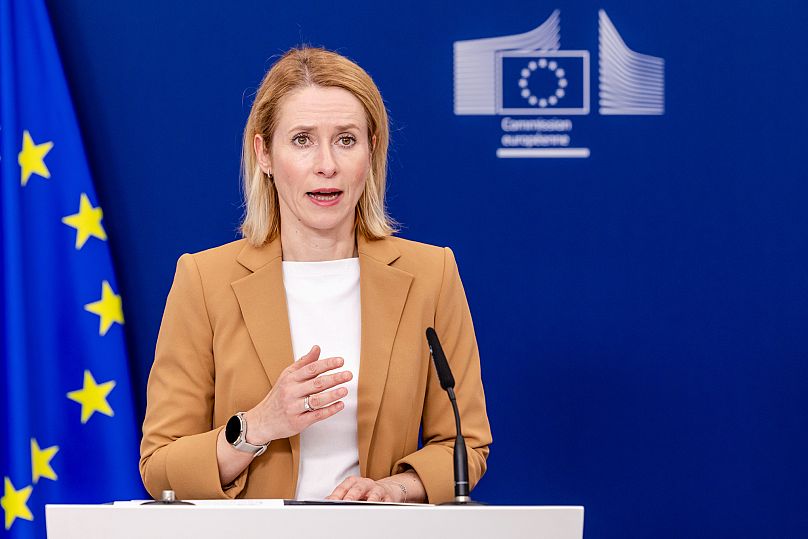Emergency workers recovered more bodies on Wednesday from the rubble of a nine-story Kyiv apartment building destroyed by a Russian missile, bringing the death toll from the latest attack on the Ukrainian capital to 28.
The building in Kyiv’s Solomianskyi district took a direct hit and collapsed in what was the deadliest Russian attack on the city this year. Authorities said that 23 of those killed were inside.
While sniffer dogs searched for buried victims, rescuers used cranes, excavators and even their hands to clear debris from the site.
The attack overnight on Monday into Tuesday was part of a sweeping barrage as Russia once again sought to overwhelm Ukrainian air defences. More than 440 drones and 32 missiles were launched - one of the biggest bombardments on the capital since the war began in 2022.
Russia has launched a summer offensive along parts of the roughly 1,000-kilometre frontline and has intensified long-range attacks that have struck urban residential areas.
At the same time, US-led peace efforts have failed to gain traction, while Middle East tensions and US trade tariffs are diverting global focus away from Ukraine’s calls for greater diplomatic and economic pressure on Russia.
Brussels warns of long-term Russian aggression in Europe
Meanwhile, the European Union says that Russia poses a direct threat to the bloc through acts of sabotage and cyberattacks, while its massive military spending suggests Moscow also plans to use the armed forces elsewhere in the future.

“Russia is already a direct threat to the European Union....This is a long-term plan for long-term aggression. You don’t spend that much on military if you do not plan to use it,” Kallas told EU lawmakers in Strasbourg, as she listed a series of Russian airspace violations, provocative military exercises, and attacks on energy grids, pipelines and undersea cables.
Kallas noted that Russia is already spending more on defence than the EU's 27 nations combined, and this year will invest more “on defence than its own health care, education and social policy combined.”
NATO Secretary-General Mark Rutte has said that Russia is producing as many weapons and ammunition in three months as the 32 allies together make in a year. He believes that Russia could be in a position to launch an attack on a NATO ally by the end of the decade.
Concern is mounting in Europe that Russia could try to test NATO’s Article 5 security guarantee, the pledge that an attack on any one of the allies would be met with a collective response from all 32.
In 2021, NATO allies acknowledged that significant and cumulative cyberattacks might, in certain circumstances, also be considered an armed attack that could lead them to invoke Article 5, but so far no action has been taken.







